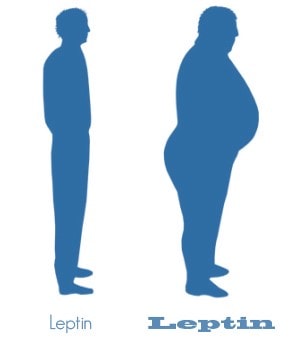Leptin Knee Arthritis: More Links Found Between Obesity Hormones and Knee Arthritis
Obesity is linked to knee arthritis in obvious and not so obvious ways. First, it’s obvious that someone who is heavier would cause more wear and tear on their joints. However, it’s not so obvious that hormonal signals gone awry that are associated with obesity may lead to more arthritis.
Case in point in a signaling hormone called Leptin, and what we call Leptin Knee Arthritis. This chemical provides the signal that your stomach is full. However, as you eat more and more (something usually driven by eating sugary or high starch foods), your body’s ability to turn off hunger with a normal leptin signal declines. In essence, you produce more and more leptin to try and turn off the signal to eat, much like your body produces more and more insulin to digest all of that sugar. Both systems can get worn out, so that your body just doesn’t know that it’s full in proportion to what it actually needs. Hence we have our “super sized” portions which are needed to fill the stomachs of people who no longer have a functioning leptin trigger for being full.
However, is there a link between leptin and arthritis? The answer, based on a number of prior studies and a recent study is yes. This study found a direct correlation between leptin levels in the blood and arthritis and this was independent of how much someone weighed. In addition, it also found more leptin in the knee joints of patients with early arthritis.
The upshot? Hormones that are the causes of obesity seem to act negatively on cartilage health. How can you reduce your leptin levels and therefore the potential of leptin knee arthritis? Leptin is decreased by short-term fasting (24-72 hours), improving sleep, less stress, by increased testosterone levels and exercise. Another way is to get rid of the sugars and starches and reduce your portion sizes. Also realize that every time you over stuff that belly, you may also be hurting your knee cartilage!

If you have questions or comments about this blog post, please email us at [email protected]
NOTE: This blog post provides general information to help the reader better understand regenerative medicine, musculoskeletal health, and related subjects. All content provided in this blog, website, or any linked materials, including text, graphics, images, patient profiles, outcomes, and information, are not intended and should not be considered or used as a substitute for medical advice, diagnosis, or treatment. Please always consult with a professional and certified healthcare provider to discuss if a treatment is right for you.

